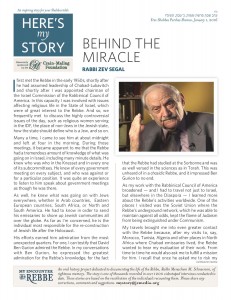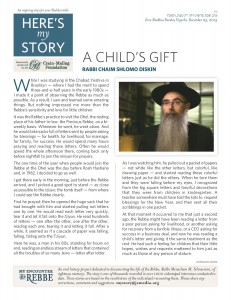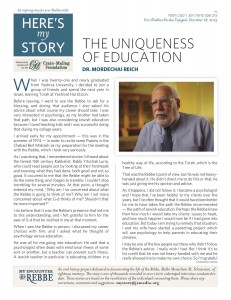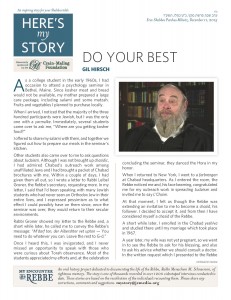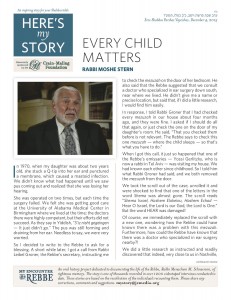Behind The Miracle
I first met the Rebbe in the early 1950s, shortly after he had assumed leadership of Chabad-Lubavitch and shortly after I was appointed chairman of the Israel Commission of the Rabbinical Council of America. In this capacity I was involved with issues affecting religious life in the State of Israel, which were of great interested to the Rebbe. And so, we frequently met to discuss the highly controversial issues of the day, such as religious women serving in the IDF, the place of non-Jews in the Jewish state, how the state should define who is a Jew, and so on.
Many a time, I came to see him at about midnight and left at four in the morning. During those meetings, it became apparent to me that the Rebbe had a tremendous amount of knowledge of what was going on in Israel, including many minute details. He knew who was who in the Knesset and in every one of its subcommittees. He knew of every government meeting on every subject, and who was against and or for a particular position. It was quite an experience to listen to him speak about government meetings as though he was there.
As well, he knew what was going on with Jews everywhere, whether in Arab countries, Eastern European countries, South Africa, or North and South America. He had to know in order to send his emissaries to shore up Jewish communities all over the globe. As far as I’m concerned, he is the individual most responsible for the re-construction of Jewish life after the Holocaust.
His efforts earned him admiration from the most unexpected quarters. For one, I can testify that David Ben Gurion admired the Rebbe. In my conversations with Ben Gurion, he expressed the greatest admiration for the Rebbe’s knowledge, for the fact that the Rebbe had studied at the Sorbonne and was as well versed in the sciences as in Torah. This was unheard of in a chasidic Rebbe, and it impressed Ben Gurion to no end. (more…)


